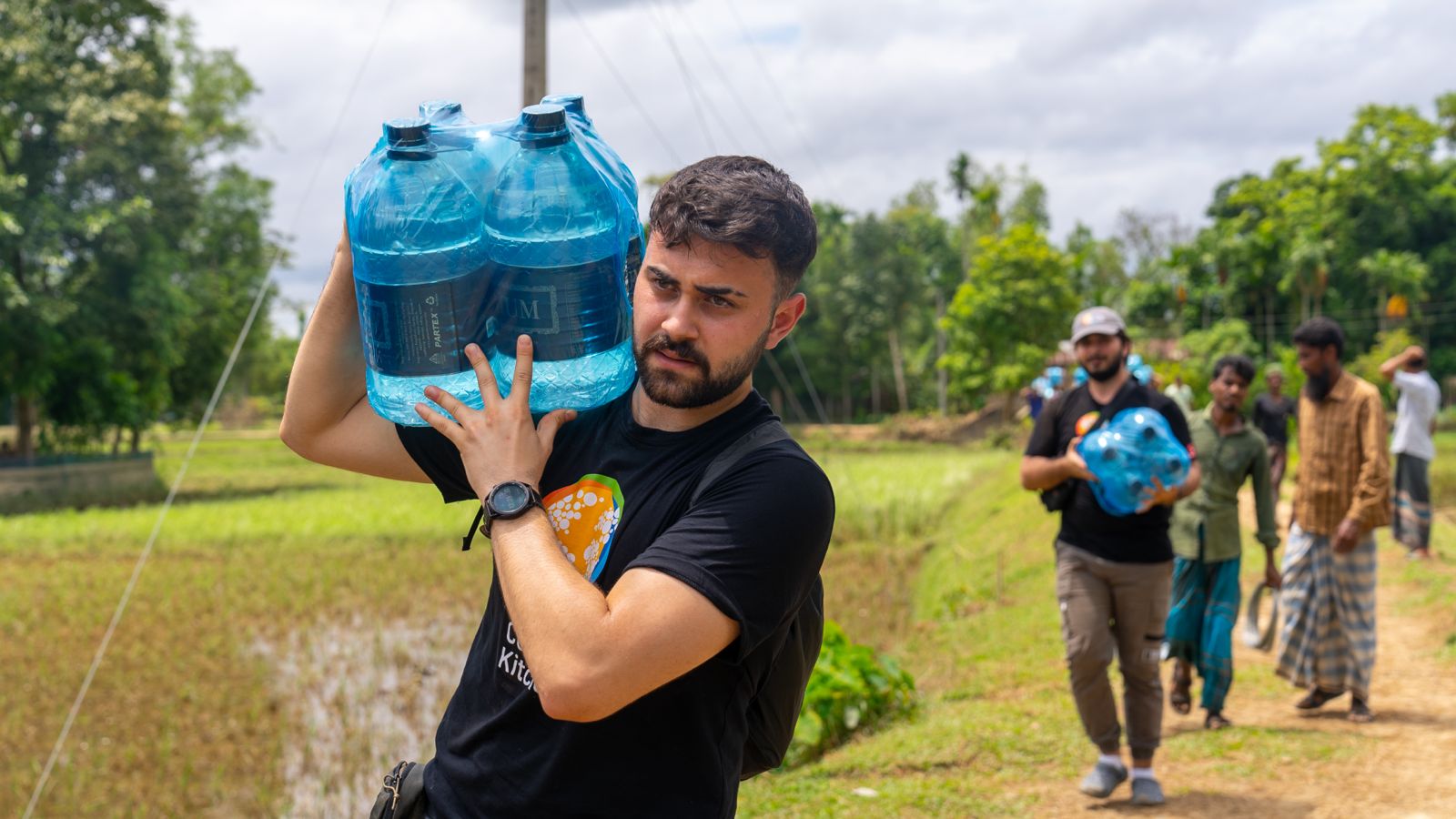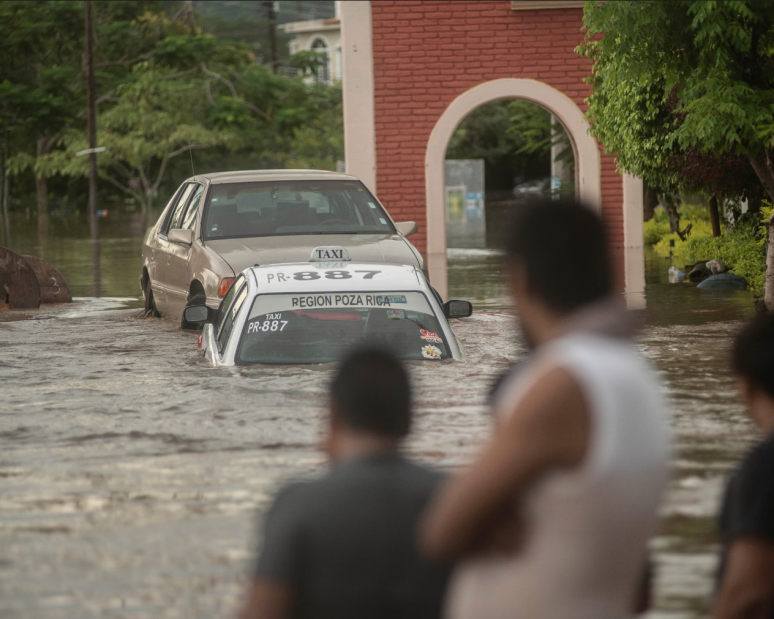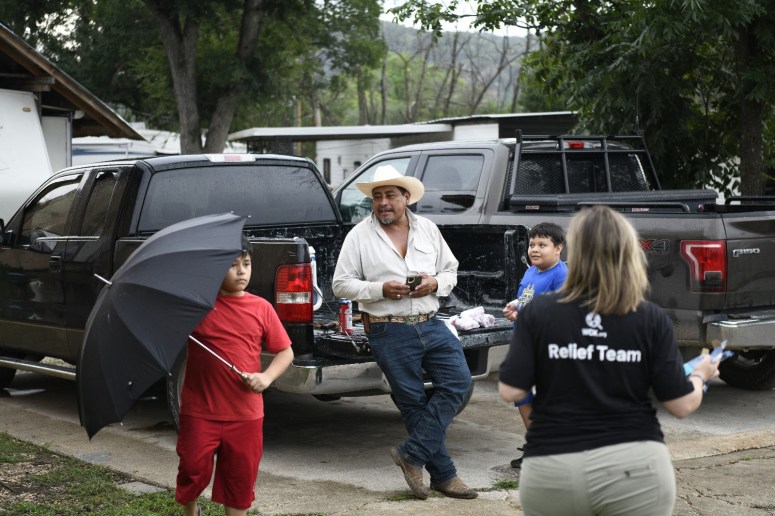Last-mile deliveries: Getting to the hardest hit regions in Bangladesh

WCK’s mission of being first to the frontlines to provide fresh meals in response to crises often means meeting people where they are—even if there are extra challenges to overcome to reach isolated communities most in need. In Bangladesh, monsoon rains led to catastrophic flooding that cut off many communities from critical resources. At least 70 people have died as a result of the widespread floods and a sanitation crisis looms, making these “last-mile deliveries” of food and potable water a lifeline.
Boats and handcarts have been used to get food and water to isolated communities.
Early in our response, WCK teams packaged meals, food kits, and water in waterproof materials and used a variety of boats to reach areas that are no longer accessible by foot in northeast Bangladesh. Other villages can be accessed by land, but the flooding severely damaged roads making it impossible for trucks to complete the final leg of their deliveries.
Locals help WCK teams deliver food and water.
It’s in these moments where we see the local community step up to help us complete last-mile deliveries to their neighbors. WCK teams, for example, successfully delivered food aid as close as trucks could get to families in Lalpur on Aug. 31. The town rallied to make the rest of the journey to the relief center on foot alongside our team, sometimes using small carts to transport desperately needed food kits.

Lalpur’s farms were under water for at least 10 days, causing crops to wash away. The decimated local agriculture industry has contributed to the acute food and water needs in the area. Once the aid arrived, local women came to pick up the food kits. Many of them have had to leave their homes and take shelter in local schools or neighboring villages. For some, the journey to our distribution point was more than a two mile walk.
Bison was one of the women who received a food kit. “The water level rose to waist height and we had to leave our house at midnight to survive,” she said. ”I went to my father’s place. I don’t know how I survived last month, only Allah knows. I’m thankful to WCK because no other organization came here to support us.”

The water level rose to waist height and we had to leave our house at midnight to survive.
Bison
Food Kit Recipient
In recent days, WCK shifted its focus to southern Bangladesh where the impact of the monsoon flooding is also devastating. We conducted our first assessment of the area by helicopter to identify the areas most in need and encountered communities that were also isolated and in need of last-mile efforts.
Pictures from helicopter scouting show the extent of the flood damage.
We delivered samosas by rickshaw to a shelter housing about 400 families in Adarsh Gram, a remote village on the coast of Bangladesh that has received no prior outside aid despite extensive flooding. Children living in the shelter, where there has been no electricity for two weeks, enjoyed the comforting and familiar samosas.
When the villages we encounter have the means to cook for themselves, we tailor our last-mile deliveries to meet their needs. While scouting regions south of Feni, we came across a center for orphans operating as a shelter. Local community members were already using traditional cooking methods to share hundreds of meals within the community. WCK will return with more equipment and ingredients to support their incredible efforts.
A local orphanage operating as a shelter for displaced families.
Local communities go the extra mile even in the midst of disaster and WCK’s teams do the same. Stay up to date with the latest information from the ground by signing up to our newsletter to receive more information and follow us on Instagram, Twitter, and Facebook for real time updates.

Help us continue supporting families in Bangladesh.

















